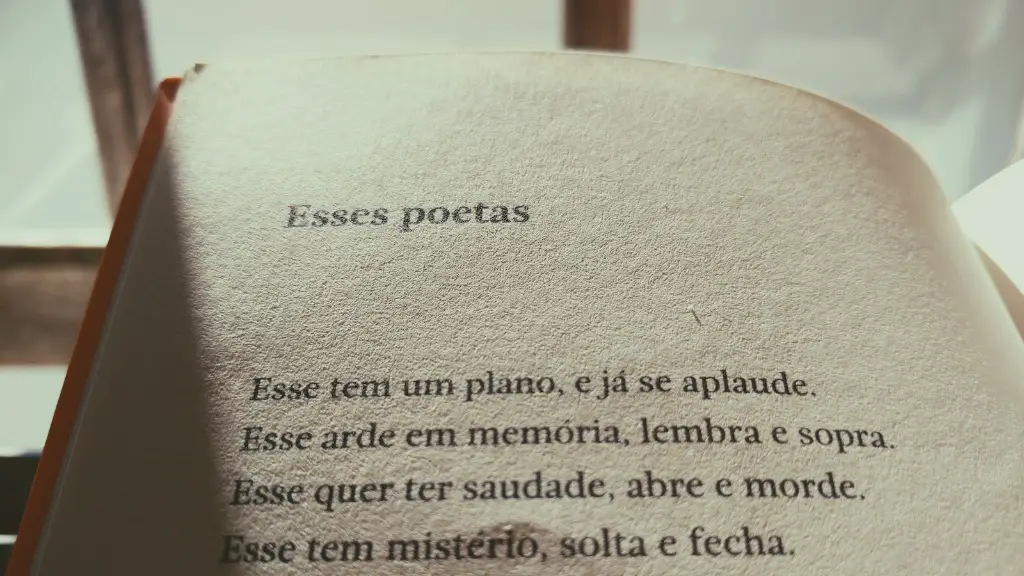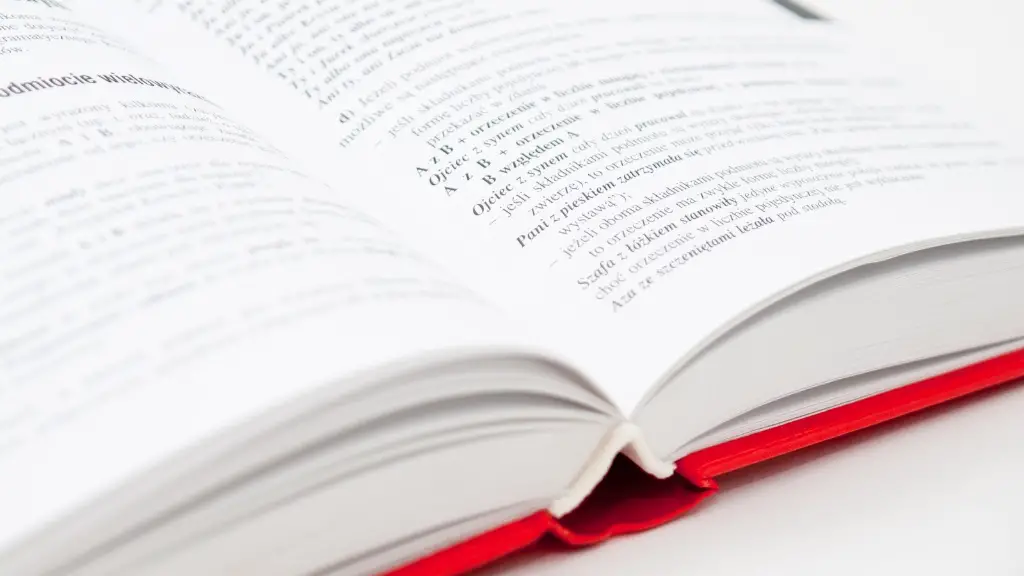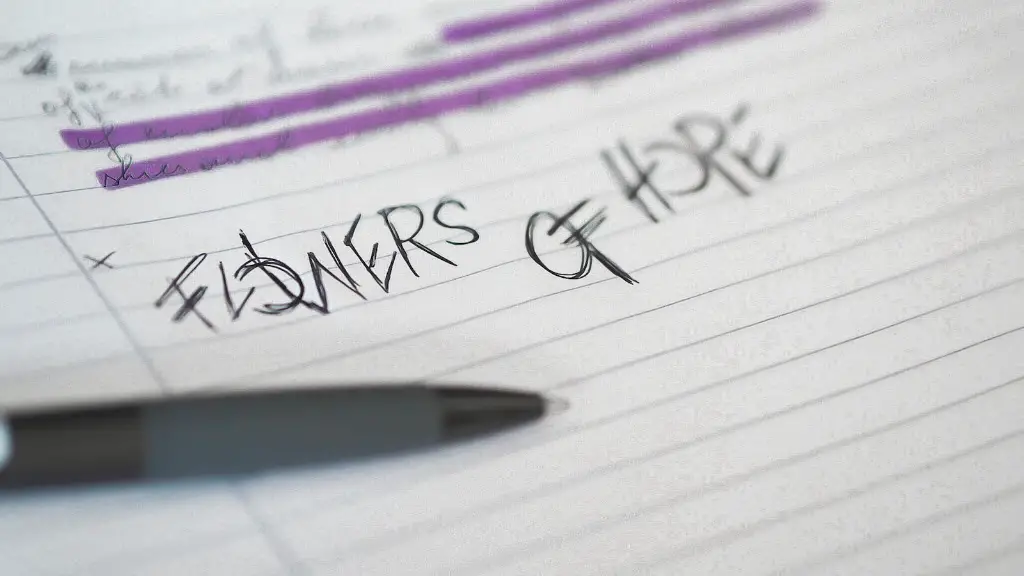Epic poetry is one of the oldest forms of literature, originating in ancient Greece, and is still evident today. While there have been many interpretations of what constitutes an epic poem, some key components include the subject matter, length of the poem, the use of grand language, and its heroic protagonist or protagonists. What was originally passed down through oral tradition from one generation to another is now a mainstay in literature courses in universities across the world.
The most well-known example of epic poetry is Homer’s Iliad and Odyssey. This epic poem follows the hero Odysseus and his journey back home to Ithaca after the Trojan War. Other examples are Virgils Aeneid, which tells the story of the wandering prince Aeneas and the founding of Rome, and John Milton’s Paradise Lost which is an epic retelling of Adam and Eve’s fall from grace.
In each of these epics, readers are invited to sympathize or identify with the protagonists as they encounter a variety of struggles or adventures. The hero’s epic journey or quest can also symbolize the struggles of humanity, such as the triumph of good over evil. This often reflects the culture and values of the society from which the poem emerged.
Often the poem is divided into cantos or books, symbolizing its almost mythical or religious connotations. Epics are often written in a grand or formal language that sets them apart from other forms of literature. Epic poetry is most commonly written in an iambic pentameter or a dactylic hexameter, using metaphors and allusions to create a more lyrical effect in the poem.
Epic poems are rarely read as one piece, with many of the most notable epics involving several different books. This is due to the length of the poem and the need for its readers to be familiar with the previous events and figures related to its protagonist. For instance, Homer’s Odyssey consists of 24 books, an epic poem filled with adventure and ultimately a return to Ithaca. This necessitates the need for attentive reading in order to fully comprehend the epic poem.
Epic poetry is not just relegated to the past, but instead continues to influence the present. An example is Walt Whitman’s collection of poems Leaves of Grass, which is based on the classic epic form but has been adapted to reflect more modern themes. In Leaves of Grass, Whitman revolutionizes the classic epic poem while also honoring its past with themes such as love and democracy.
Epic poetry can also be found in popular culture in the form of modern-day epics. The “epic” genre in film, TV, and books is a tribute to the innovation of epic poetry. This has been successful in captivating readers and allowing them to access these stories from different points of view and experiences. For instance, the novel The Lord of the Rings by J.R.R. Tolkien, which is a play on the classic epic poem of Beowulf, is still widely read today.
Different Forms of Epic Poetry
Epic Poetry is often made up of different forms like Hexameter, Choliambic, Monometer, and Temeion, each having its own specific meaning and related to certain genres. Hexameter is a two-line form and is often used in pastoral poetry. Choliambic is another form of Epic Poetry which is divided into two parts. This form is mainly used in satire and lampoon, and it serves to parody the original hero. Monometer is a line of verse, in which a poem can be divided into two or three parts. Lastly, Temeion is an extended form of Epic Poetry, that is divided into four parts, each of them longer than a hexameter.
The Impact of Epic Poetry on Culture
Epic poetry has been intertwined with the culture of many ancient civilizations for centuries. Among the ancient Greeks, the epics of Homer were the foundation of their cultural education and background, with young boys learning the Iliad and the Odyssey as part of their scholastic apprenticeships. Even today, epic poetry is still a source of inspiration and exploration with its heroic characters, the power of their tales, and the possibility of a moral lesson in the end.
The themes of epic poetry are still relevant in today’s literature, with stories of heroism and courage as well as trials and tribulations. They are influences for authors and screenwriters, who incorporate these themes into their work to create modern epics that can similarly inspire and motivate readers. From classic masterpieces such as Paradise Lost to modern-day interpretations like the Harry Potter series, epic poems have been a major source of art and have a lasting presence in literature and beyond.
Are There Different Kinds of Epic Poetry?
The answer to this question is yes. There are several different types of epic poetry, and they vary in style and structure. Some of the more popular types of epic poetry include the Classical Epic, the Chivalric Epic, the Folk Epic, and the Mock Epic. The Classical Epic is a lengthy poem that is rooted in tradition and typically features old-fashioned language. The Chivalric Epic is a poem that tells the story of a knight and his quests, while the Folk Epic is a traditional poem that is passed down through generations and is often associated with a certain region. Finally, the Mock Epic is a poem that uses a traditional poetic structure to tell a humorous story.
Epic Poetry in Pop Culture
In recent years, epic poetry has made its way into pop culture, with movies like The Lord of the Rings and Chronicles of Narnia channeling aspects of famous epic poems. Songs like the classic rock anthem “Bohemian Rhapsody” have become cultural touchstones, with many considering its narrative structure—in which singer Freddie Mercury tells a story of guilt and redemption—to be a modern interpretation of the epic form. Even television shows such as Game of Thrones have adopted epic conventions in their narratives.
Epic poetry remains an important part of literature and culture. Its influence can be seen in new and emerging genres, with its core themes of heroism, tragedy, and moral lessons continuing to shape modern storytellers and the way we tell stories. Moreover, its powerful language, symbols, and structure have enabled ancient texts to remain relevant in our time, honoring a form of tales that dates back to ancient times.
Education and Epic Poetry
Epic poetry is still a part of the educational curriculum around the world. It is used to teach important principles, such as the importance of cherishing the classics. Students are taught how to appreciate literature and to recognize literary terms, like allusions, similes, and metaphors, which can then be applied to their own writing. They are also given the opportunity to analyze classic works, gaining an appreciation of literature as well as gaining an understanding of how literature can be interpreted.
Epic poetry is also used in the classroom to enhance current understanding. It can be used to contrast classic epics with modern interpretations, such as comparing Tolkien’s Lord of the Rings to Homer’s Odyssey. Additionally, students can gain an understanding of the influences of epic poetry on today’s literature. This allows for a holistic appreciation of literature, not only seeing the value of classic literature, but also recognizing the impact of these works on modern writing.
The Ethics of Epic Poetry
Epic poetry also presents an ethical dimension, especially when it comes to looking at the stories and their dialogue. In classic epics, it’s not uncommon to see the protagonists present various ethical dilemmas and how they navigated the situation based on their own beliefs and values. This can be seen in the Iliad, where Achilles is presented with the dilemma of choosing between his personal honor and the greater good of the Greeks. This type of moral dilemma continues to be explored in modern epic tales.
In addition to moral dilemmas, epic poetry can also present questions of justice and justice systems. This is exemplified in Virgil’s Aeneid, which explored Rome’s militaristic legal system. Similarly, John Milton’s Paradise Lost addressed the complex and often ambiguous concepts of free will and justice within Christianity. Epic poetry has the power to bring these types of ethical issues to the forum and to allow readers to make their own interpretations.
Conclusion
Epic poetry is an ancient form of literature that has endured the test of time and left its mark on the world. Its heroic protagonists, grand language, and lyrical structure have captivated readers for generations and continue to do so today. Epic poetry provides a moral lesson, brings ethical dilemmas to the fore and amplifies human emotion through its grandiose tales. It has an emotional resonance that can be felt in today’s writing and is an essential part of the world’s literary canon.




